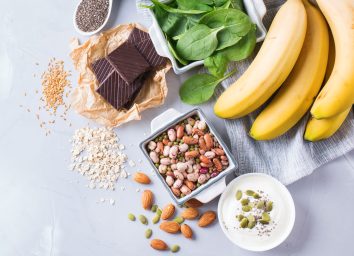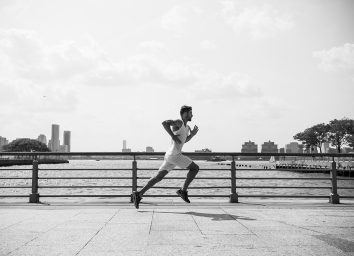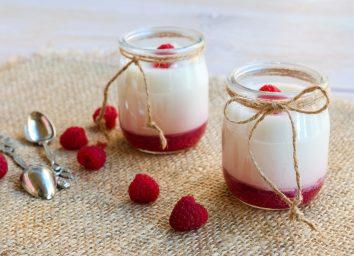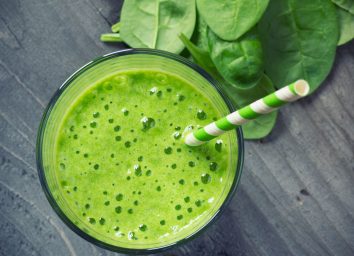Exactly What Foods to Eat—and What to Avoid—Before an Important Interview

It’s the day of your big interview. You’ve picked out a slick, professional outfit, made several copies of your resume, and completed thorough research about the company you’re about to wow—but did you remember to eat an energy-boosting meal? What is the best food to eat before an interview? And the better question is, did you eat anything that could potentially unhinge all of the work you put into this very moment?
“Proper fueling prior to an interview can be a make-or-break opportunity with your career,” says Jay Cardiello CSCS, author of Bodyweight Strength Training and Cardio Core 4×4 and co-founder of Off the Scale, a behavioral intervention wellness program at Mount Sinai Health System in New York City. We spoke with Cardiello for insight on what foods you should and shouldn’t eat before you walk into that interview room. We also consulted Laura Burak MS, RD, CDN, who is also Nutritious Life Certified, for additional insight on how these foods can either help you feel focused and energized or cause you to feel distracted and uncomfortable.
To avoid flubbing your interview and instead helping you score that job, here are five foods Cardiello suggests you eat beforehand to help you stay focused and potentially land that position.
The best foods to eat before an interview
Lean protein
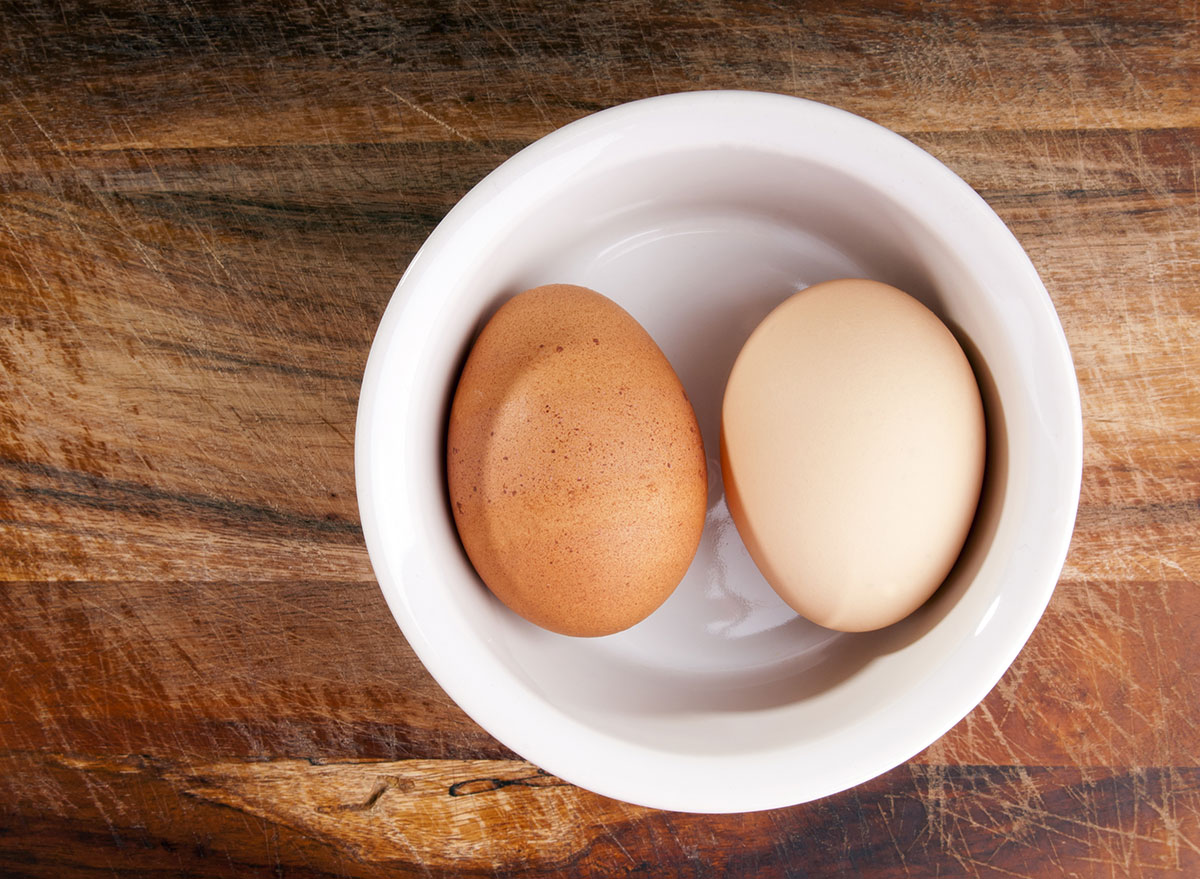
Cardiello says that lean proteins such as eggs and fish are packed with an amino acid called tyrosine, which helps the body produce two important brain chemicals and neurotransmitters: norepinephrine and dopamine. For context, dopamine is the chemical that allows you to feel feelings of pleasure and satisfaction, and it also plays a pivotal role in motor skills. Norepinephrine is the stress hormone that signals the “fight-or-flight” response in situations where you feel overwhelmed and stressed. These two brain chemicals work in unison to promote essential cognitive skills such as attention and thinking.
“Filling up on lean proteins will help with the synthesis of [these] neurotransmitters, which play a key part in keeping you focused during your interview,” says Cardiello. Norepinephrine is actually synthesized from dopamine, and together the two chemicals work to help you remain alert, stay focused, and maintain motivation—which is exactly what you want when you’re in an interview.
Burak agrees that lean protein is an important component to include in your pre-interview meal.
“Before an interview, it is important to eat a meal that contains lean proteins to slow digestion and keep your blood sugar stable, so your mind and body work most efficiently when you’re answering those tough questions,” she says.
Coffee
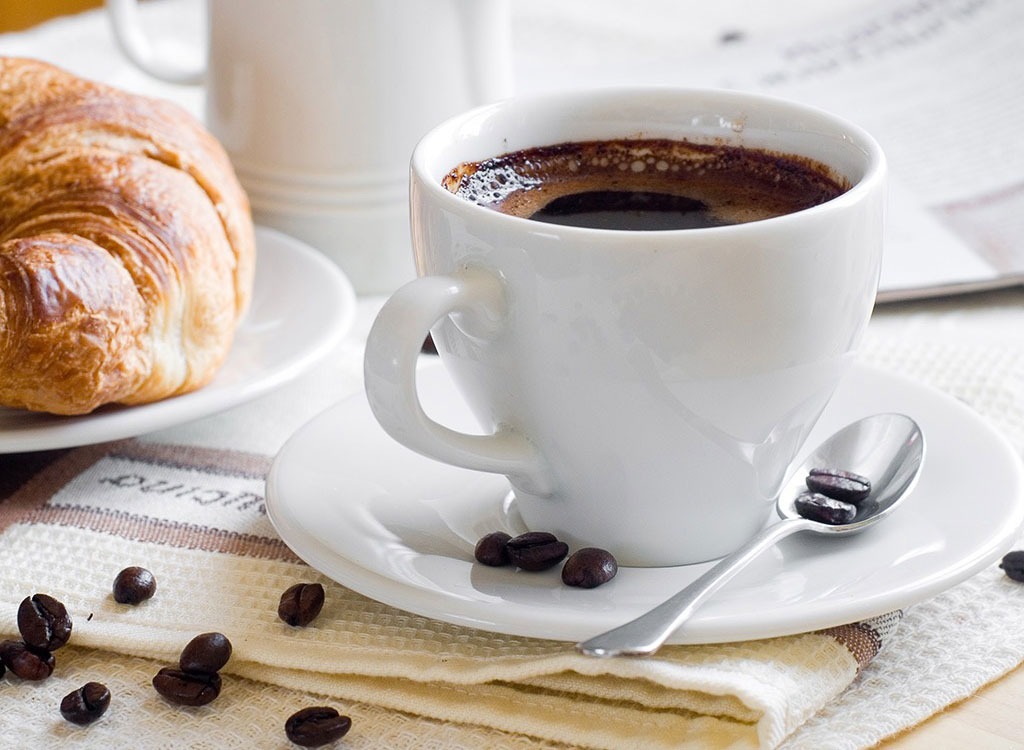
Speaking of staying alert and focused, Cardiello says coffee is a great stimulant to have before you walk into that room, so long as you don’t overdo it. “Just play it careful, as too much of your favorite cup of joe may have you full of the jitters when going through the interview process,” he says.
Burak concurs: “Coffee provides a dose of caffeine in those natural beans, which will give you that extra shot of energy and concentration before an interview.” She also adds that coffee is an even more important beverage to have before the interview if you didn’t get a good night’s rest the night prior.
“A cup of strong coffee can wake you up and help you nail that interview,” she adds.
Blueberries
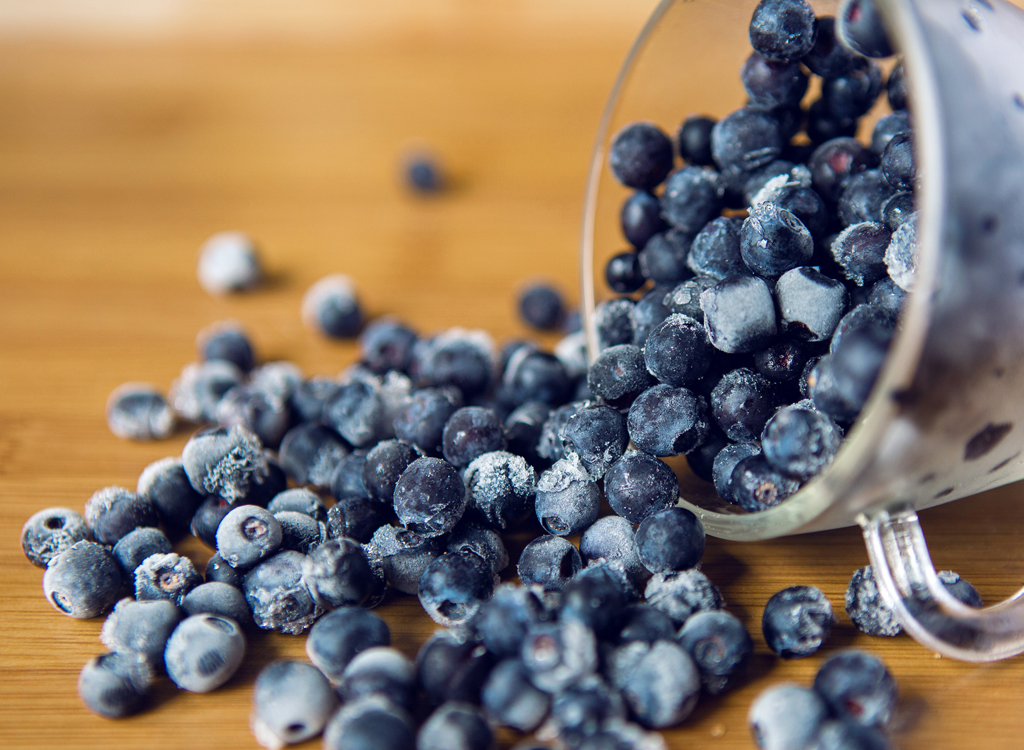
Cardiello recommends that you integrate blueberries into your pre-interview meal or snack, especially if you’re feeling anxious.
“Packed with vitamin C, this fruit can help to repair and protect our cells, which are perfect for those of us who feel stressed and anxious come interview time,” he says. Research has shown that people who have high levels of vitamin C do not demonstrate nearly as many mental and physical signs of stress that are anticipated to occur in the midst of what should be a stress-provoking situation (think public speaking). Even more, people who have adequate vitamin C levels are able to recover from stressful situations more quickly than those who don’t have enough of the vitamin.
Aside from alleviating stress, blueberries are just an all-around healthy food to nosh on before you engage in something as significant as landing your next gig.
“Berries are one of my favorite fruits in general for their naturally lower sugar and higher fiber content, so if you include them in your meal before an interview, they won’t spike your blood sugar,” says Burak.
Almonds
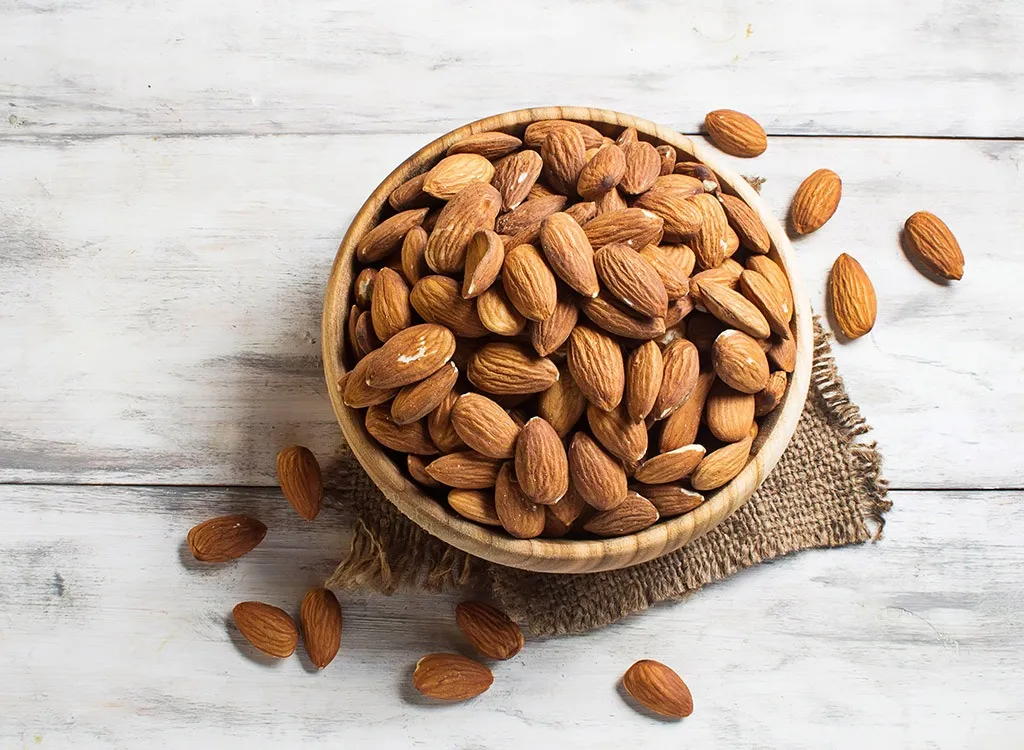
Almonds are loaded in a lot of vitamins and minerals, but the one of most importance here though is the trace mineral magnesium. Magnesium has been shown to be, “an effective treatment for anxiety-related symptoms, as low levels of magnesium can reduce the level of the neurotransmitter serotonin in the brain,” says Cardiello. There is a link between magnesium and stress levels: a deficiency of magnesium in the brain reduces serotonin levels, also known as the “happy” or “feel good” chemical. Serotonin is believed to regulate anxiety, your ability to feel happy, and even your overall mood.
Some 95 percent of your body’s supply of the neurotransmitter lies within the gut, so what you eat directly impacts your serotonin levels. Not eating a sufficient amount of magnesium-rich foods regularly can cause you to feel anxious and even make you feel a little blue. Cardiello suggests tossing back a few ounces of almonds before your interview so that you feel confident and calm. For perspective, just one ounce of almonds contains a whopping 20 percent of your daily needs of magnesium.
Burak also confirms that almonds are a good go-to food to eat before an interview.
“Nuts naturally contain all of the macronutrients we need to keep our bodies working efficiently,” she says. “If you don’t have time for a meal, a handful of almonds will always stabilize your blood sugar and hunger levels so you don’t have to worry about bottoming out during an interview.”
Greens full of B vitamins

You can never go wrong with veggies, and it turns out, some greens actually are a solid food to eat before an interview.
“Vegetables such as broccoli and spinach are packed with B vitamins. These vitamins help with fatigue and anxiety,” says Cardiello. Not consuming enough foods that are rich in three particular kinds of B vitamins—B12, B6, and B9—is linked to anxiety, panic attacks, and even depression. Leafy greens such as spinach and broccoli are loaded in the vitamin B9, otherwise known as folic acid. Cardiello says it’s best to include a few cups of leafy green vegetables into your daily meal plan, especially a few days leading up to the big interview.
Burak even suggests you eat leafy green vegetables at every meal if you can. “I always recommend them at every meal for the amazing amount of vitamins, minerals, and fiber all greens provide, which will just simply make you feel mentally refreshed and ready to conquer anything—especially before a big event,” she says.
The worst foods to eat before an interview
Onions
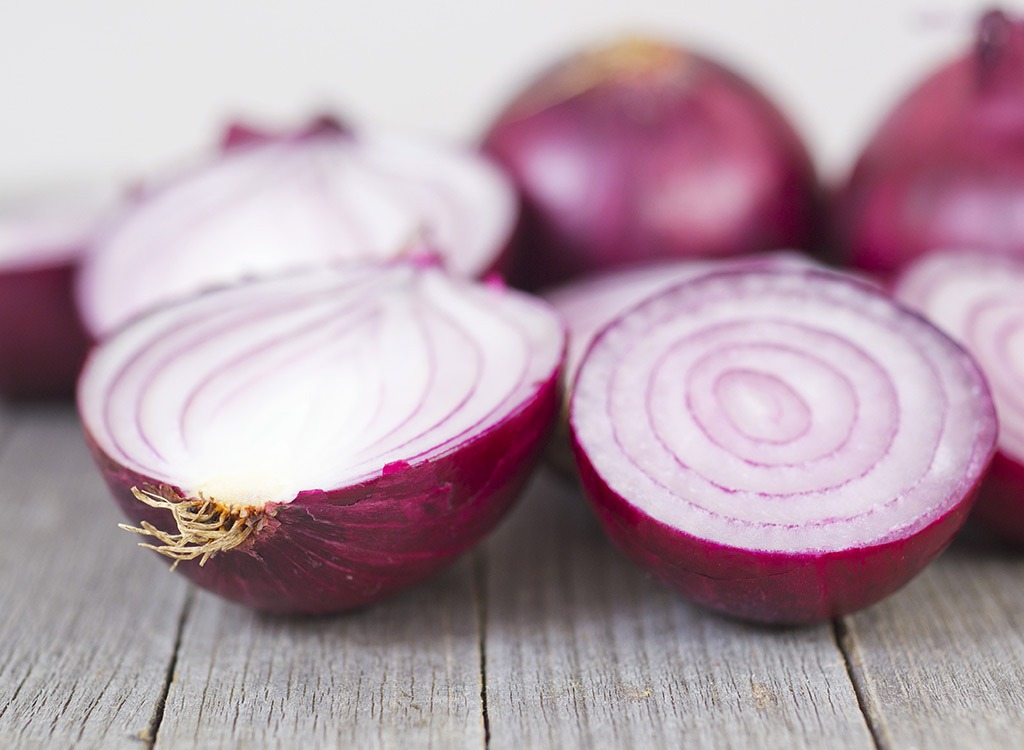
Not only will cutting onions before your big interview cause you to get teary-eyed, it may also cause you to, politely put, reek all over—and not just your breath. “Now, onions may be a staple food in many cultures, [but] chomping on them within 24 hours prior to an interview can cause bad breath,” says Cardiello. That distinguishable onion stench may also be transferable to your overall body odor as well, he says. Foods like onions that have a strong odor contain oils that could emit a foul-smelling body odor as they are excreted through the skin via sweat glands. Not only can onions make you smell bad, but they can also make you experience stomach discomfort, which could distract you from what’s most important: nailing the job interview.
“Onions are part of the cruciferous vegetable family, which are known as the gassy ones,” explains Burak. “Before an interview, I would recommend avoiding cruciferous veggies such as onions so your belly is happier and less bloated and gassy.” The big takeaway: onions are at the top of the list when it comes to foods you should never eat right before an interview!
Sugar-free packaged foods

Foods and chewing gum that are marketed as “sugar-free” often contain the artificial sweetener sorbitol. “This sugar alcohol, when fermented by gut bacteria, can cause unwanted gas,” says Cardiello. “Be sure to read the labels and steer clear of any candy or gum that contains sorbitol.”
Burak also says to steer clear of the stuff. “There is only one category of foods that I tell people to completely avoid, and that is sugar-free foods for a variety of reasons, but especially before an interview,” she says. Burak says that sugar alcohols such as sorbitol are also referred to as gastric irritants, because of their ability to aggravate stomach lining and cause bloating, gas, and even diarrhea. No one wants to deal with all of that gastrointestinal discomfort just moments before they waltz into a room full of potential employers.
Carbonated drinks
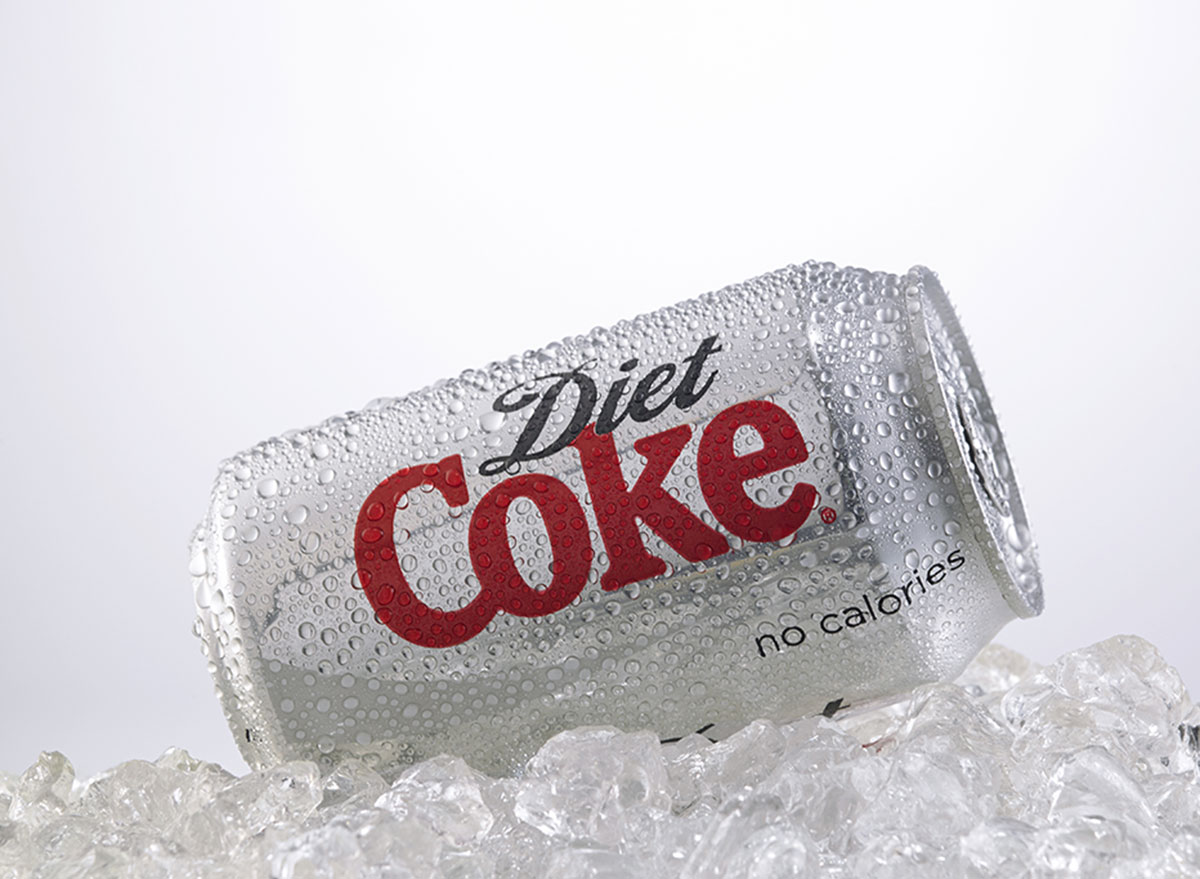
“Sure, a Diet Coke may be your go-to beverage when preparing for the interview, however, be sure to steer clear of drinking any carbonated beverage the day of the interview,” advises Cardiello. Why? “These drinks are loaded with high amounts of carbon dioxide. Drinking one or more of these beverages can cause you to swallow a lot of gas, which can cause unwanted gas and painful bloating,” he says.
Burak seconds that statement: “Carbonated drinks introduce more gas into your GI tract, which is the last thing you want to compete with during an interview!” Are you beginning to see a pattern among all of the foods you should avoid before an interview?
Dairy products
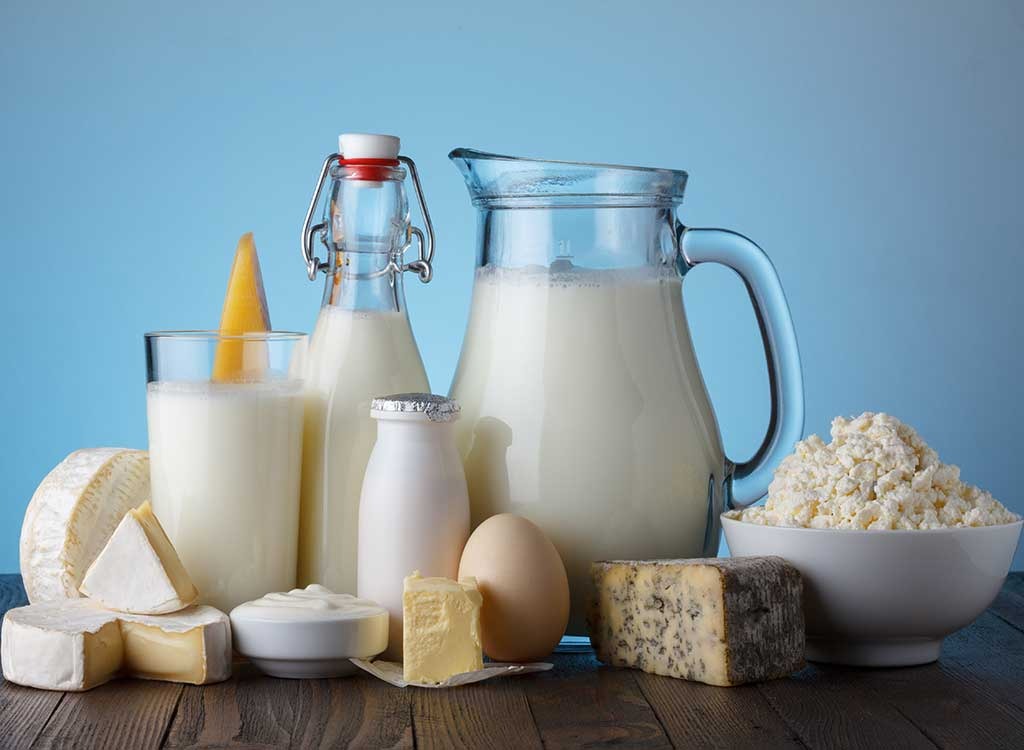
“While dairy may seem like a great place to find calcium and protein, it is something that we should avoid the day of any interview,” says Cardiello. The reason for this is lactose, milk’s naturally occurring sugar. According to the U.S. National Library of Medicine, an estimated 65 percent of people worldwide struggle to breakdown lactose as well as they did when they were an infant.
“If you are someone who is lactose intolerant and therefore has a sensitivity to dairy products, it is best to avoid them before an interview as you may experience GI issues like gas, bloating, and diarrhea. If you tolerate dairy well though, like most people, it can be part of a healthy diet,” she says. If you’re someone who experiences gastrointestinal discomfort from dairy from time to time, perhaps it would be best to opt for a lactose-free yogurt instead of flirting on the side of danger with a traditional variety.
Alcohol

This one may sound obvious, however, it’s not absurd to think that someone would have a little glass of alcohol to help quell their nerves before facing a room full of people.
“Besides the obvious of fumbling on your words, and lack of concentration, alcohol is not an ideal choice even if the interview takes place at dinner or lunch time,” says Cardiello.
“Alcohol can make you tired and fuzzy, which is the last thing you want to consume before an important interview,” Burak adds. If you’re super nervous and need something to sip on, opt for a mug of calming tea such as chamomile a few hours before your big interview. This way you don’t risk becoming dehydrated or hazy in the moment that you need to feel most refreshed and alert.
Now you have an idea of what foods and drinks to consume—and which ones to steer clear of—to properly slay your next job opportunity. No more wondering what foods to eat before an interview!
